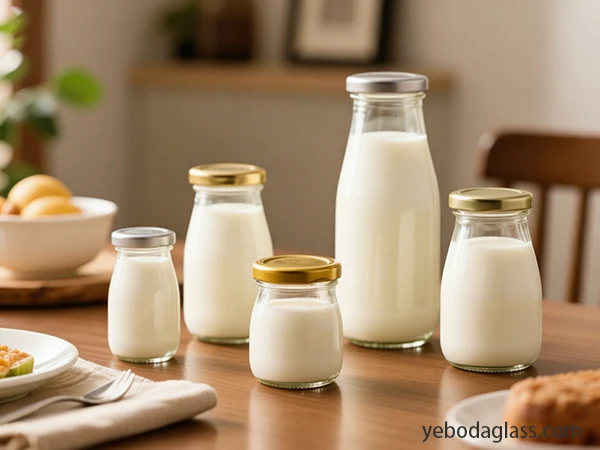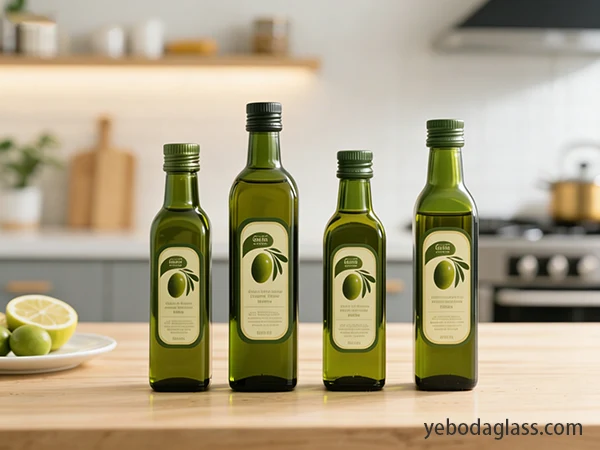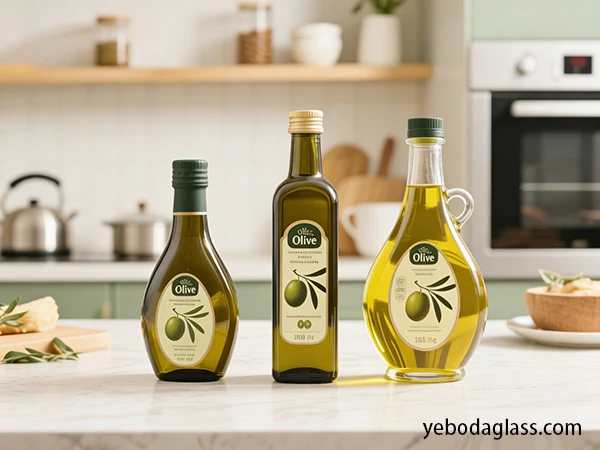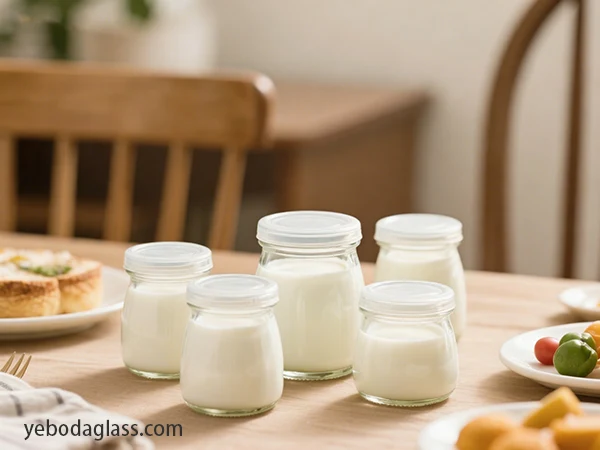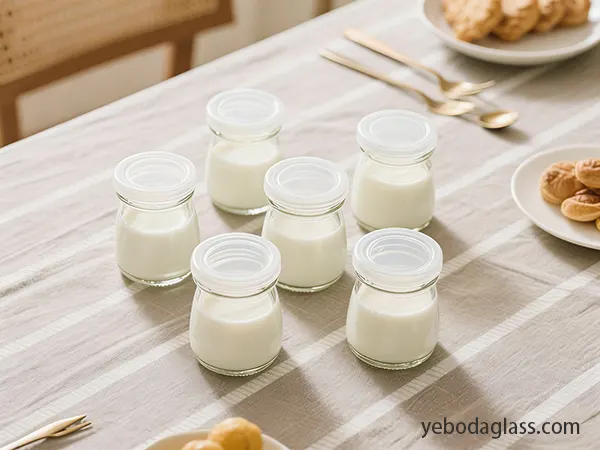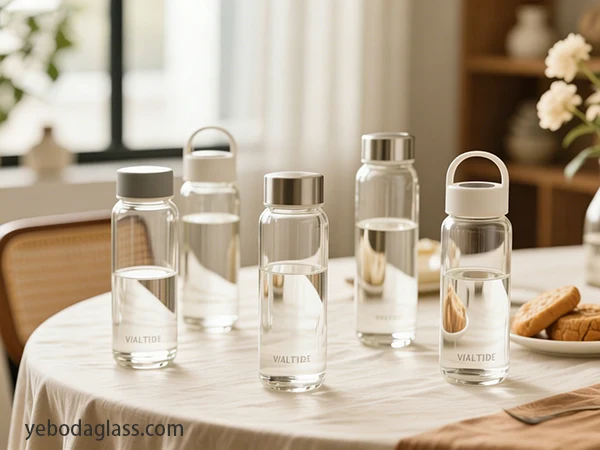Introduction
Choosing the right glass oil bottle is an important decision for wholesale buyers and brand owners food, cosmetic and pharmaceutical industries. Packaging is not only about control; This plays an important role in preserving the freshness of the oil, preventing contamination and introducing a strong brand image. Wholesale customers should evaluate material quality, optimization opportunities, suppliers reliability, cost adaptation and compliance with international regulations before making procurement decisions. This guide provides actionable insight to businesses for the source of high quality glass oil bottles at competitive prices. By analyzing material specifications, design options, closure systems, sourcing strategies, cost factors and compliance protocols, we equip decision-makers from a structured perspective for suppliers selection.
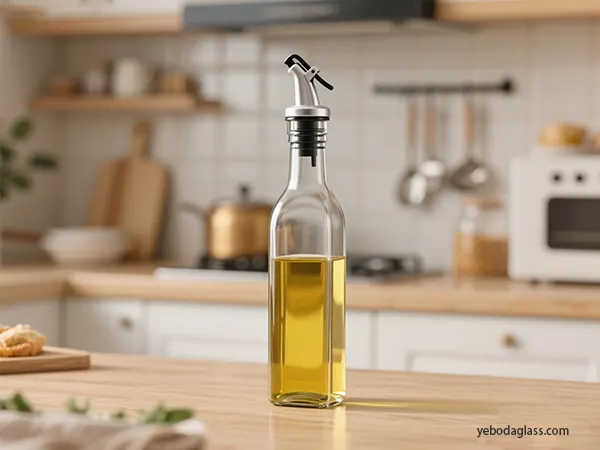
Material Specifications and Quality Assurance for Glass Oil Bottles
Glass Types and Properties
The base material determines the performance of a glass oil bottle, which affects both safety and durability. Different oil applications -Sara, cosmetic, or medical -unlonged properties:
- Lead-free glass: It is necessary for food and cosmetic packaging to prevent contamination and comply with international food safety standards.
- Borosilicate glass: provides better resistance to heat and sudden temperature changes, ideal for oils requiring sterilization or high durability. Often paired with eco-friendly bamboo or silicon closure.
Glass Color and UV Security
- Clear glass: The product maximizes visibility but provides limited protection against UV radiation.
- Amber (brown) glass: Effectively blocks harmful light, oil expands the shelf life. Widely used in pharmaceuticals and essential oils.
- Green Glass: Moderate UV provides security and a classic beauty, often used in culinary oils.
- Cobalt Blue Glass: A specific brand offers offer additional UV filtration.
- Dark Violet Glass: Suitable for premium oils, the strongest natural UV-blocking properties.
Thickness and Durability
A glass oil bottle with thick walls is more resistant to the impact while transporting and dealing with the warehouse, to reduce the breakdown rate and reduce long -term replacement costs.
Industry Standards and Testing
- FDA compliance: Guarantees suitability for direct food and oil contact.
- ISO 9001: 2015 Certification: Ensures systematic quality management in manufacturing.
- Annealing and cold and coating: strengthen durability and reduce scratches.
- Precision Mold Engineering: Guarantees dimensional consistency and flawless finishing.
By understanding these specifications, wholesale buyers can protect the quality of oil and secure bottles that strengthen the brand trust. At this stage, the glass oil bottles of Yeboda are standing out because they are manufactured with premium lead-free materials, undergoing strict annealing processes, and FDA and ISO meet standards-which are using both safety and durability for wholesale buyers.
Bottle Design, Capacity and Adaptation Options
Miscellaneous Bottle Size and Size
Suppliers provide a wide spectrum of glass oil bottles to fit various applications:
- Figures: cylindrical, square, oval, and custom molds are designed to reflect brand identity.
- Capacity: Small 30 ml dropper bottles for essential oils, mid-range 200ml-500ml size for cooking oil, and 750ml-1l bottles for retail.
Customization for Brand Identity
Modern manufacturers provide branding enhancements:
- Custom Shapes: Unique molds provide competitive differentiation
- Glass Colors: Custom tints aligned with corporate branding
Surface Decoration
- Silk-screen printing for logos
- Frosted finishes for a premium look
- Hot stamping with metallic foils
- Embossing/debossing for tactile branding
- Custom labeling options for marketing flexibility
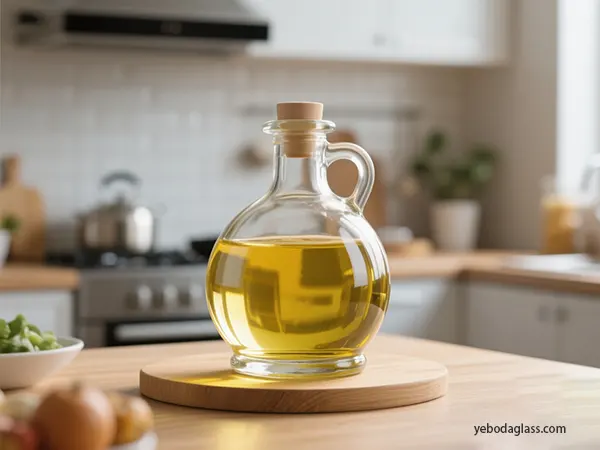
Functional Enhancements
Value-added features improve user experience:
- No-Drip Spouts for precise culinary use
- Graduation Markings to aid dosing
- Pump or Spray Attachments for cosmetics and therapeutic oils
Strategic design choices not only protect oils but also elevate product positioning. Yeboda’s glass oil bottles excel in customization flexibility—offering a variety of sizes, shapes, and decoration methods—allowing B2B buyers to strengthen branding while maintaining top-level product protection.
Closure Systems: Functionality, Compatibility, and Branding
Closure Types
The closure of a glass oil bottle is central to preventing leaks, contamination, and product degradation. Options include:
- Screw Caps (CT/Lug): Reliable and versatile.
- Droppers (Euro Droppers with Orifice Reducers): Ideal for essential oils requiring precise dosage.
- Dispensing Pumps: For lotions, serums, or oils.
- Sprayers: For culinary or cosmetic misting.
- Pourer Caps: For controlled, drip-free dispensing of cooking oils.
- Swing Tops: Provide a secure and vintage aesthetic.
- Glass Stoppers: Elegant, inert, and suitable for luxury oils.
Material Options
- Aluminum & Tinplate: Corrosion-resistant and durable.
- Plastics (PP/PE): Lightweight, economical, FDA-compliant.
- Cork: Traditional, natural look but requires quality control to prevent leakage.
- Glass: Premium choice for luxury branding.
- PVC Shrink Wraps: Provide tamper evidence.
Compatibility & Safety
- Thread Standards: GPI/GCMI or DIN ensure global compatibility (e.g., DIN18 for droppers).
- Tamper Evidence: Safety rings and shrink bands reassure consumers.
- Liners: Foam or induction liners ensure airtight sealing.
Closures influence both functional reliability and consumer trust. Yeboda’s glass oil bottles come with multiple closure compatibility options, precision thread systems, and tamper-evident features—making them ideal for both culinary and pharmaceutical applications.
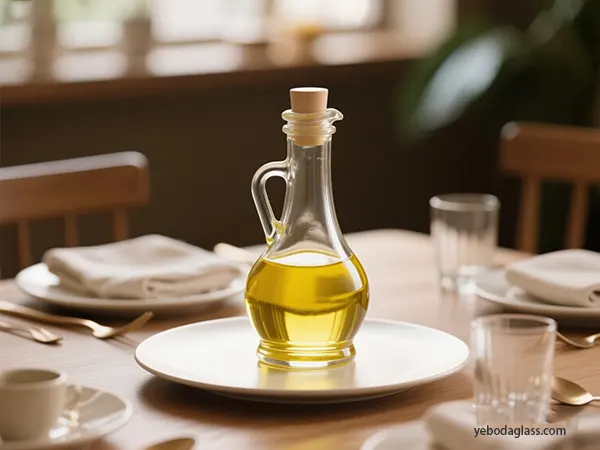
Wholesale Sourcing Strategies and Supplier Identification
Geographic Supplier Distribution
- China: Largest exporter with diverse options and cost competitiveness (Xuzhou and Jiangsu hubs).
- Europe: Premium quality glass, often sustainability-focused (Stoelzle, VetroElite).
- USA: Domestic suppliers like Glassnow reduce lead time but may have higher unit costs.
Supplier Evaluation Criteria
- When selecting wholesale partners for glass oil bottles, businesses should assess:
- Production capacity (daily output, scalability).
- MOQs (ranging from 3,000–10,000 units).
- Customization flexibility.
- Certifications and quality control systems.
- Lead time reliability.
- Ethical and sustainable practices.
Sourcing Channels
- Direct Manufacturer Contracts: Lower cost but require stronger vetting.
- Distributor: Localized logistics with small MOQs.
- B2B platform: Alibaba and Made-in-China suppliers provide access but require careing careing.
- Business Show: Enable Product Evaluation on hands.
Using structured evaluation helps wholesale customers create a flexible supply chain with reliable glass oil bottle suppliers.
Cost analysis and price adaptation
Major Cost Driver
- Raw material: Silica sand and purity of recycling rates.
- Bottle size: large bottles increase material and shipping costs.
- MOQ: Economies of scale reduce unit costs.
- Customization: Molds and decoration increase upfront investment.
- Energy Consumption: High furnace temperatures add costs.
- Freight & Insurance: Weight and fragility impact logistics expenses.
- Compliance: Testing and certifications increase production overheads.
Market Price Benchmarks
- The US Glass Packaging market estimated CAGR: 3.6% (2022–2025).
- Manufacturing cost of an original 12oz bottle: $ 0.04- $ 0.05.
Adaptation Strategies
- Interaction on better pricing based on order volume.
- Adapt the packaging for low shipping costs.
- Take advantage of local sourcing to cut the freight.
- Choose efficient designs that use low glass without compromising strength.
Regulatory Compliance and Test Protocol
The compliance ensures consumer safety and the reliability of the brand when sourcing glass oil bottles.
- FDA 21 CFR: Controls permissible compositions for food-contact materials.
- European Union Regulation 1935/2004: Prevents harmful stay in food.
- PH. Eur. And USP standard: Define hydrolytic resistance to drug glass.
Testing protocols include:
- Leachables & Extractables (L&E): Prevents harmful chemical migration.
- Hydrolytic resistance: Bottle ensures flexibility for alcohol and moisture.
- Tampering Evidence Test: Ensures closed integrity.
Independent verification from recognized laboratories (SGS, Entertes, Eurofin) provides assurance for wholesale buyers.
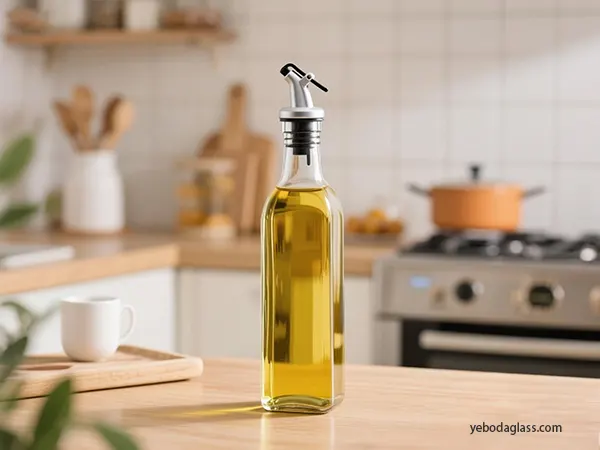
Supplier Documentation and Risk Mitigation
Wholesale buyers should require:
- Certificate of Analysis (COA).
- Security data sheet (MSDS).
- Third-party laboratory test report.
- Risk mitigation strategies include:
- Dual sourcing in areas.
- Security stock to offset the delay.
- Suppliers audit and performance scorecard.
Conclusion and Next Stage
A multi-step strategy is required to secure the supply of the right glass oil bottle:
- Define product-specific requirements (oil type, off, UV protection, branding).
- Identify suppliers and vet by using clear compliance and capacity criteria.
- Request samples and test orders to evaluate quality.
- Conversable pricing and interacting on MOQ agreements.
- Apply quality and compliance through documentation and testing.
- Apply risk management through supplier diversification.
By implementing these practices, B2B wholesale customers can confidently source sustainable, obedient and brand-growing glass bottles.

